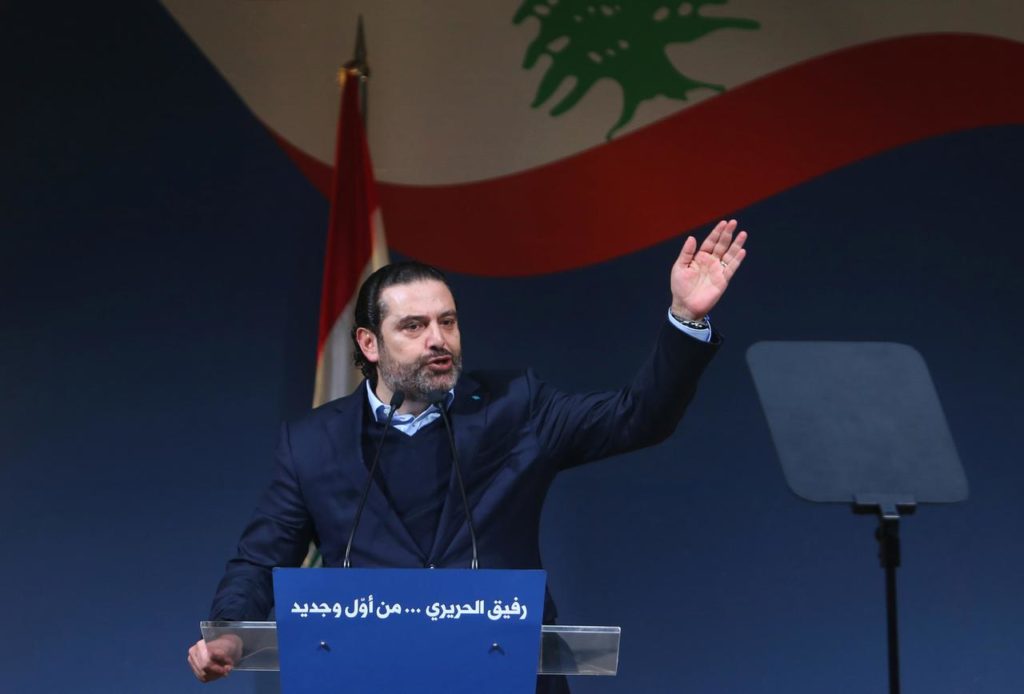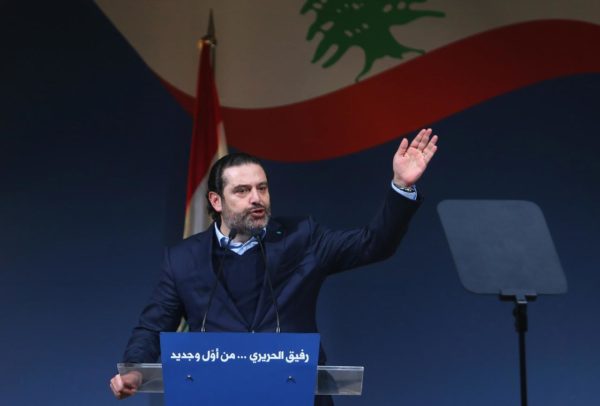Lebanon’s ex-Prime Minister Saad al-Hariri, in his first major address as an opposition figure after the formation of a new cabinet, charged his rivals with pushing the country to near-collapse and cast doubt on their ability to win foreign support.

The speech by Hariri, the country’s top Sunni Muslim politician, laid bare growing political divisions that could complicate Beirut’s push to enact painful reforms and recover from the worst economic crisis since its 1975-1990 war.
A cabinet formed last month by the powerful Iran-backed Hezbollah and its allies, the first since Hariri resigned in October in the face of protests, must contend with a severe liquidity crunch and fast-approaching debt payments, with a $1.2 billion Eurobond due on March 9.
The government clinched a parliamentary vote of confidence on Tuesday but several major parties, such as Hariri’s Future Movement, the Christian Lebanese Forces and Kataeb parties, and the Druze Progressive Socialist Party, all withheld support.
Speaking on the 15th anniversary of the assassination of his father, ex-premier Rafik al-Hariri, Hariri lambasted his rivals, casting their obstruction of reforms as largely to blame for the depth of the current crisis.
“We organized the Cedar conference, and we got $11 billion dollars for the economy based on reforms we agreed to and promised to implement,” said Hariri, referring to a 2018 Paris donor conference. “But what can I do if someone does not keep to his word?”
Hariri, an ally of Western and Gulf Arab states at odds with Iran, threw his most scathing jabs at former Foreign Minister Gebran Bassil, the son-in-law of President Michel Aoun, who he called a “shadow” president who had subverted his work and helped push the country to collapse.
The remarks underscored the end of a fragile cross-sectarian alliance that had held between Hariri, Aoun’s Christian Free Patriotic Movement and Hezbollah, a coalition that formed the basis of two previous governments.
In his speech Hariri raised prickly questions about how the new cabinet, seen as dominated by Hezbollah, could win the badly needed support of countries at odds with Iran, another potential obstacle to its recovery bid.
“Can we establish tourism without Arab and Gulf citizens? Can we open markets for Lebanese goods without having Arab and Gulf markets in particular?” said Hariri.
“Iran’s cash can solve the problems of a party, but not a country’s,” said Hariri, in a pointed reference to Hezbollah.


Leave a Reply
You must be logged in to post a comment.